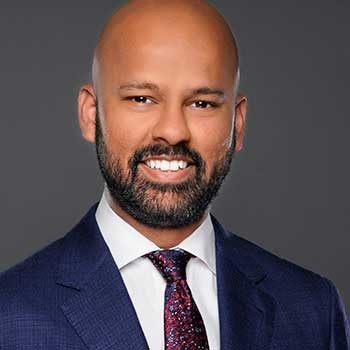
Over the past decade, Pakistan has been building its reputation as a provider of offshore services. According to a 2019 report by Duke University, Pakistan first gained recognition as an alternative outsourcing location in 2009, making it a fairly late entrant to the global shared services market. While the country has not yet caught up with such established outsourcing rivals as India and the Philippines, it is increasingly seen as an attractive destination for companies globally that are looking to outsource certain administrative functions.

Barkan Saeed, chairman of Pakistan Software Houses Association, says the administrative functions most likely to be outsourced to shared services centres in Pakistan include inbound and outbound call centres, finance and accounting, HR, IT support and development, and medical transcription services.
Some major US businesses – including information company S&P Global and healthtech business MTBC – have shared services operations in Pakistan. The country also boasts some sizeable homegrown outsourcing companies, including Systems Limited (which was listed as one of Asia’s 200 Best Under A Billion by Forbes in 2020) and TRG.
‘Businesses now understand the work-from-home concept and that it does not matter where a person is sitting’
So what’s the explanation for Pakistan’s rise as a global hub for shared services centres and other outsourced services? ‘Our financial attractiveness is among the best in region – both for office setup and payroll and wages,’ Saeed explains. ‘And in areas such as accounting and programming, our employees have excellent skills.’
Pakistan also has considerable demographic advantages. It has a large population of more than 220 million and the median age is a youthful 22.8 years.
‘More than 60% of our population is under 30,’ says Asif Peer, CEO of Systems Limited, ‘and a large part of the workforce is young, proficient in English, hardworking and intelligent. Our time zone favours the export of services and business process outsourcing, and we possess a large pool of trained and experienced professionals.’
Gateway
Peer highlights Pakistan’s location as another strength. ‘We are the gateway to our energy-rich, financially liquid and economically advanced neighbours, including China, Saudi Arabia and the United Arab Emirates.’
The progress made by Pakistan in the shared services space is clear. By 2017, the country was exporting US$655m in shared services, according to Duke University’s research.
‘Our time zone favours the export of services and business process outsourcing’
What’s more, in December 2020, Aminul Haque, Pakistan’s minister for IT and telecoms, predicted that Pakistan’s exports of IT and technology-enabled services, including call centre services, would reach US$1.2bn by the end of this fiscal year (30 June).
Although Pakistan’s star has been rising as a provider of shared services, it suffered a setback when it fell from 30th place to 37th on consultancy Kearney’s 2019 Global Services Location Index. Imran Ashraf, CEO of Telenor Global Shared Services Pakistan, believes the drop was primarily due to the rankings including a new digital resonance category. Digital resonance incorporates metrics such as digital outputs, the digital skills of the labour force, and the extent to which a country’s legal framework takes digital business models into account, including cybersecurity protection.
Technology and talent
‘The real question is how Pakistan can grow its shared services industry by capitalising on technology and digital transformation,’ Ashraf says.
The launch in January of a scheme for special technology zones to develop clusters for IT and IT-enabled-services is a step in the right direction. These clusters will have special tax incentives and infrastructure for local and global companies to set up their businesses in Pakistan. These will help attract both talent and investment in the services sector and provide much-required boost to shared services and outsourcing industry in Pakistan.
‘To grow its shared services industry Pakistan must capitalise on technology and digital transformation’
In addition to an inviting and easy to use business environment, Ashraf points out that ‘the workforce is key.’ Saeed agrees that talent is a critical component. Pakistan, he says, ‘has an opportunity to train its talent in these new skills, to help drive the growth of the country as a shared services location’.
Other areas require development too. Infrastructure (including office space with quality bandwidth, reliable power and security) and levels of corruption need addressing, while regulatory changes are too frequent and unpredictable. The Duke research also highlights Pakistan’s need for ‘a satisfactory international marketing strategy’ to effectively position itself as an attractive shared services destination.
Beyond the pandemic
Significantly, the Covid-19 pandemic could play a major role in driving Pakistan’s future growth as an outsourcing hub. The changes in working practices that have accompanied the pandemic in many parts of the world – together with the associated pressure on companies to cut costs – are opening up new markets for exporters of outsourcing services.
‘Businesses now understand the work-from-home concept,’ Peer says, ‘and that it does not matter where a person is sitting. So they have become increasingly comfortable with the idea of offshoring and outsourcing.
Changes in working practices – together with pressure to cut costs – are opening up new markets for exporters of outsourcing services
‘The pandemic has also forced many businesses to explore cloud services, disaster recovery services, and so on, which has brought technology to the forefront. The fortunes of all global technology companies have risen during the pandemic because of the digital transformation journey that is taking place.’
While the future already looks bright for Pakistan’s shared services centre industry, ACCA members in the country can play a part in furthering its success. By doing so, they will not only help to increase the prosperity of their country, but they will also benefit from new clients and job creation.
Role for ACCA members
‘ACCA members should work with existing shared services providers to improve the quality of work and train people so Pakistan’s talent is recognised globally,’ Saeed suggests.
Ashraf believes that ACCA members could help to promote Pakistan’s shared services domestically in several ways. He suggests helping to develop industry-specific qualifications and promoting shared services within the public and private sectors. Members could also market the services internationally.
In 2019, the global outsourcing market was worth a whopping US$92.5bn, according to information provider Statista. And Pakistan is well placed to seize a bigger slice of what is a very large pie.
Peer, for one, is optimistic about the future. ‘The government is actively focusing on eliminating gaps in infrastructure to sustain both economic and social development,’ he says. ‘The country is teeming with possibilities.’




